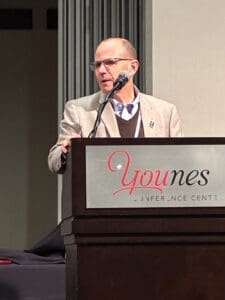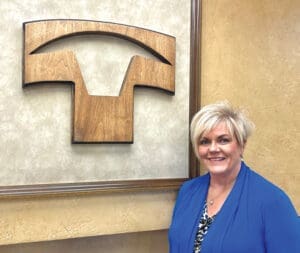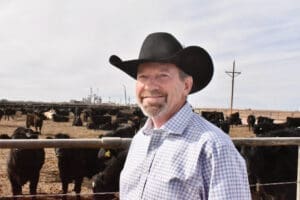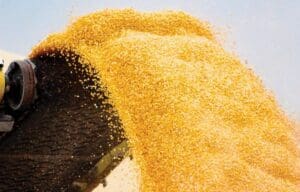By Patti Wilson, Contributing Editor
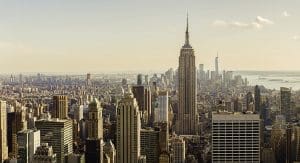
Greenwashing. What is that? It’s at the center of the lawsuit that Letitia James, New York Attorney General, has filed against JBS USA, the subsidiary of the world’s largest producer of beef products. JBS is charged with misleading the public about its environmental impact, saying it will achieve net zero greenhouse gas emissions by 2040. JBS had documented to expand production, and therefore (allegedly) increase its carbon footprint, according to papers filed against the company in February. Thus, greenwashing.
According to the Womble Bond Dickinson website on May 2, 2024, “Greenwashing generally refers to the deceptive practice of misrepresenting environmental, social and governance (ESG) credentials. Increasingly, lawsuits are claiming that companies are falsely claiming to be environmentally friendly, sustainable or socially responsible, leading consumers and investors to make decisions based on inaccurate information. These claims pose reputational, regulatory and litigation risks for organizations, but these risks can be mitigated with careful consideration of marketing materials and experienced legal counsel.”
New York State also noted, “Recent studies have shown that people are influenced by a company’s environmental reputation and are willing to change their habits to switch to more environmentally friendly products; more than two-thirds of American adults are willing to pay more for sustainable products.”
The lawsuit goes on to say that Attorney General James is asking the court to require JBS USA to cease its “Net Zero” advertising campaign, conduct a third-party audit of its compliance with New York’s consumer protection statutes, and pay disgorgement of all ill-gotten gains earned by misleading the public about their business practices as well as penalties of at least $5,000 per violation. The total number of violations will be determined by law.
More Problems
The company has encountered increased criticism as it works to list shares on the New York Stock Exchange. In early 2024, a bipartisan group of senators told the U.S. Securities and Exchange Commission, a regulatory agency with oversight of Wall Street, that JBS has a history of “exaggerating environmental stewardship and downplaying other risks.” Environmental groups were quick to concur. Last year, the National Advertising Revue Board found JBS’s claim to achieve net zero emissions misleading. JBS shares have thus far remained unlisted.
The global company has already been under scrutiny for other business practices. An April 25, 2024, article in the New York Times stated that JBS holding company J and F pleaded guilty to related charges brought by the U.S. Department of Justice.
JBS USA Response
The New York Times went on to say that since then, J and F has developed a robust anti-corruption program for the company. It has also responded to the New York State lawsuit, saying it disagreed with the Attorney General’s allegations. It would continue to work with farmers and others “to help feed a growing population while using fewer resources and reducing agriculture’s environmental impact.”
The New York Times also reported that, in part, JBS has an annual revenue of more than $50 billion and “an extensive supply chain that includes tens of thousands of farms in the Amazon.” JBS said that the ranches had been in compliance of rules to prevent deforestation when it bought cattle from them, though it acknowledged it couldn’t trace indirect suppliers. It also said it had excluded thousands of suppliers because of irregularities. It seems the State of New York wants JBS to be held accountable for greenhouse gas emissions clear down to the rancher level.
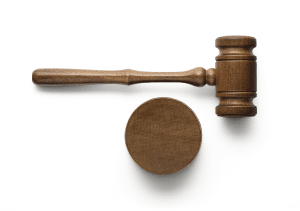
Unintended Consequences
There is no doubt that the majority of articles you’ll find on this matter will turn up in a left-leaning or blatantly left-wing publication. The Guardian, published in New York, is considered left-center and has published the most practical take on the New York State vs. JBS USA lawsuit. In part, it said in a May 2, 2024, piece, that the JBS lawsuit “caused a stir far beyond the world of food. That’s because the suit’s impact has the potential to influence the approach all kinds of big businesses take in their advertising about sustainability, according to experts.” It went on to say, “It is just one in a string of greenwashing lawsuits being brought against large airline, automobile and fashion companies of late.”
“Greenwashing” generally refers to the deceptive practice of misrepresenting environmental, social and governance (ESG) credentials.
The news service then explains consumer tendency to demand more sustainably produced goods and fall for messaging that falsely implies certain products are better for the earth than they actually are.
Included in their article was a quote from Oxford researcher Hannah Ritchie who said, “We cannot tackle climate change without also tackling food systems.”
This debacle begs the question, “Where will it all end?” With our food, airline, automobile, clothing and energy systems targeted, with our entire culture being demonized, how will it end? It’s time to realize we may be putting a noose around our own necks in the pursuit of the unattainable Nirvana of a perfect ecosystem.
I will keep you updated as this drama unfolds.

